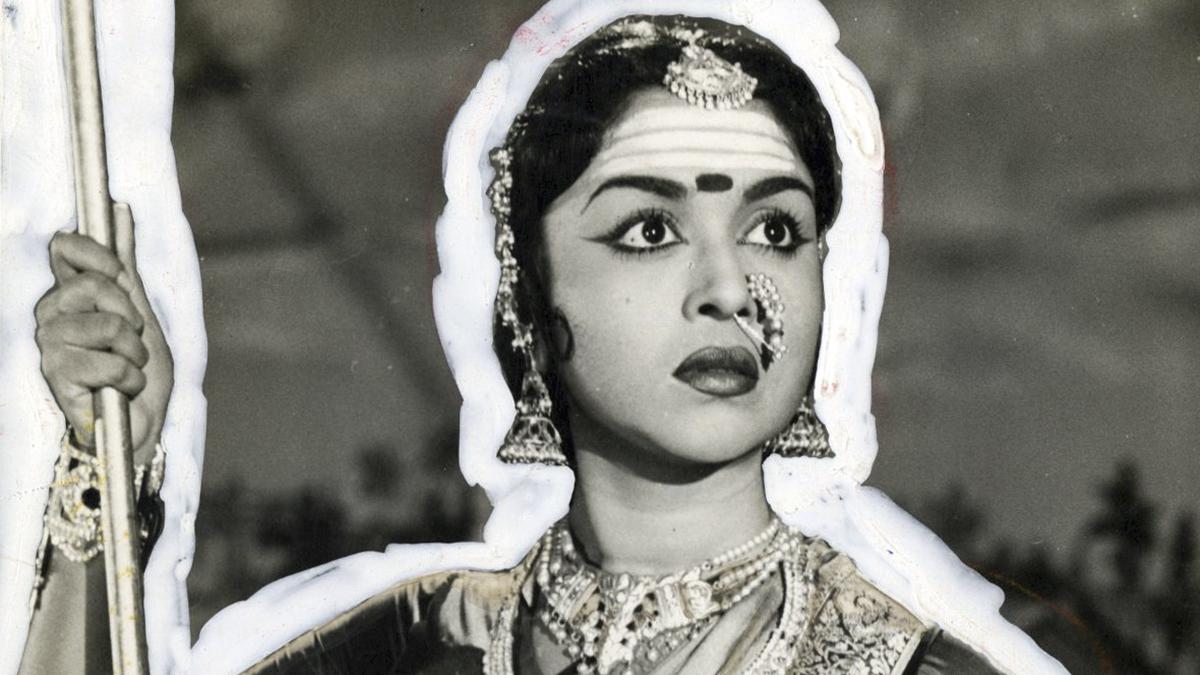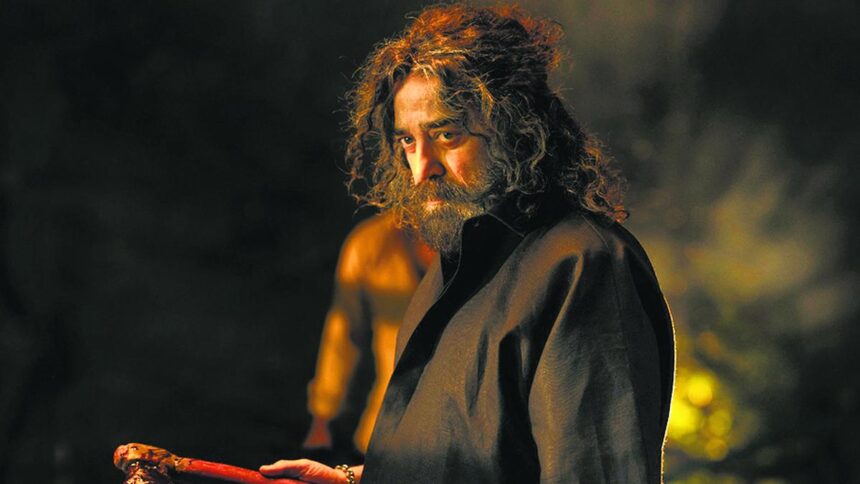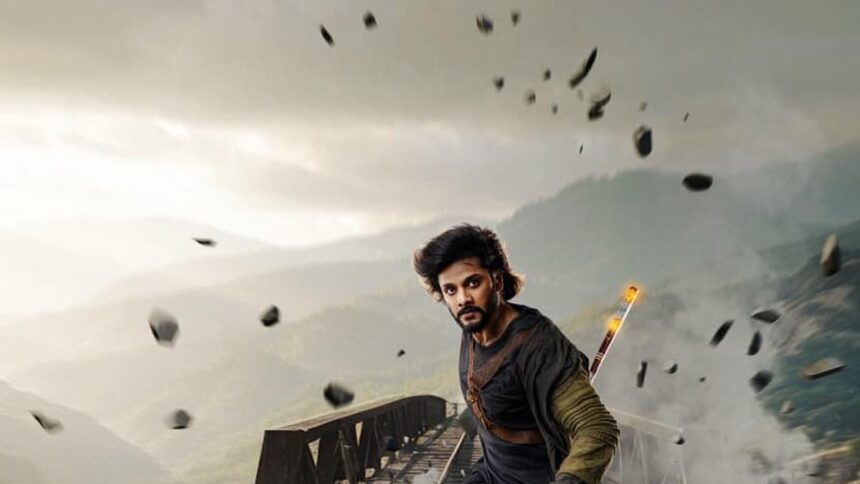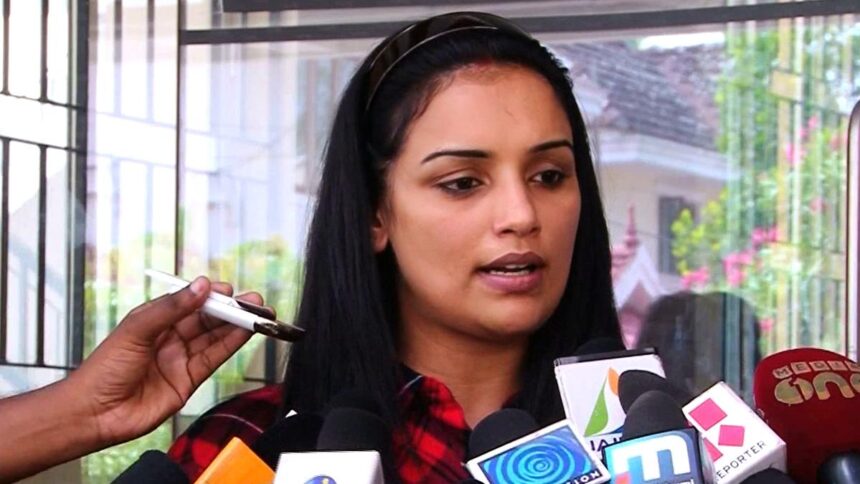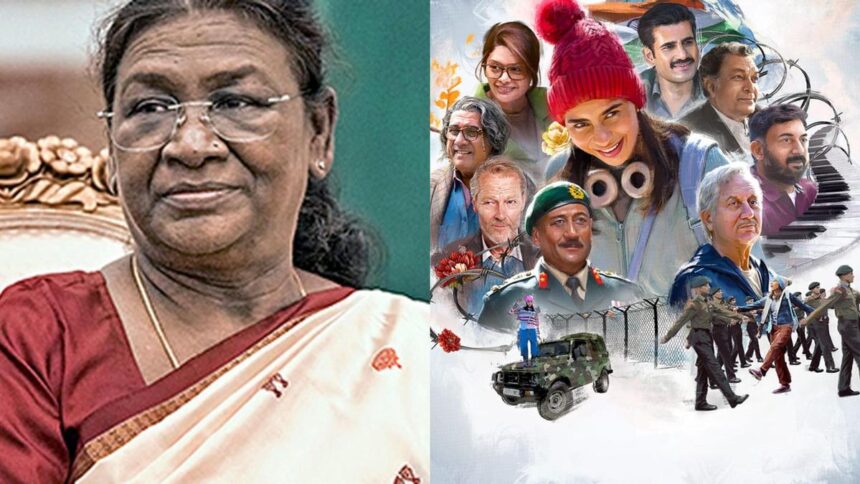
B. Saroja Devi in the Kannada film Kittur Chennamma.
| Photo Credit: THE HINDU ARCHIVES
Karnataka leaders, including CM Siddaramaiah and Deputy CM D.K. Shivakumar, condoled the death of veteran actor B. Saroja Devi, who passed away owing to age-related ailments on July 14, 2025.
“I am deeply pained by the news of the passing of veteran Kannada actress B. Saroja Devi. Having performed in approximately 200 films across Kannada, Tamil, Telugu, and Hindi languages, she became popular as ‘Abhinaya Saraswathi’,” he said in a post on X.
Recalling her captivating performances in films like Kittur Chennamma, Babruvahana, and Anna Thangi, he said her departure “is a significant loss to Indian cinema.”
Bidding a fond farewell to the ‘Goddess of Performance’, Mr. D.K. Shivakumar also expressed sorrow at her passing. Speaking to the media near her home in Sadashivanagar in Bengaluru, he said her demise felt like a personal loss as she hailed from his home district. “She has the distinction of having acted as the female lead in 161 films. Even the Tamil film industry used to call her the “Kannada Sundargini”. This is a small example of her artistic ability,” he said.
Karnataka BJP State unit president B.Y. Vijayendra mourned the Kannada film industry’s irreparable loss with the death of the Padmashri and Padmabhushan recipient.
“Having acted alongside legendary actors like Rajkumar, Kalyan Kumar, and others, she not only contributed to the Kannada film industry but also left an indelible mark as a multilingual actress in the world of art. Her performances in films across multiple languages, including Amarashilpi Jakanachari, Mallammana Pavada, Bhagyavantharu, and Babruvahana, will remain eternal in the hearts of art lovers,” he said.
Induestries Minister M.B. Patil and Mysuru-Kodagu MP Yaduveer Wadiyar also expressed their condolences. Calling Saroja Devi “a timeless icon Indian cinema”, he said, “A proud daughter of Karnataka, she captivated audiences across languages with grace and brilliance. From Mahakavi Kalidasa to Nadodi Mannan, her journey defined an era in Indian cinema. With over 200 films to her name, she remains an eternal inspiration. Her contributions to art and culture will always be remembered. Om Shanti.”
Saroja Devi (1938-2025) | In pictures
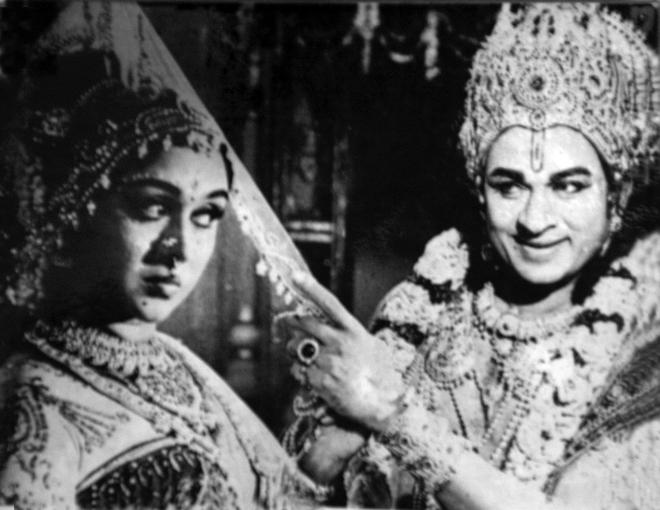
Rajkumar and B. Saroja Devi in the film Srinivasa Kalyana
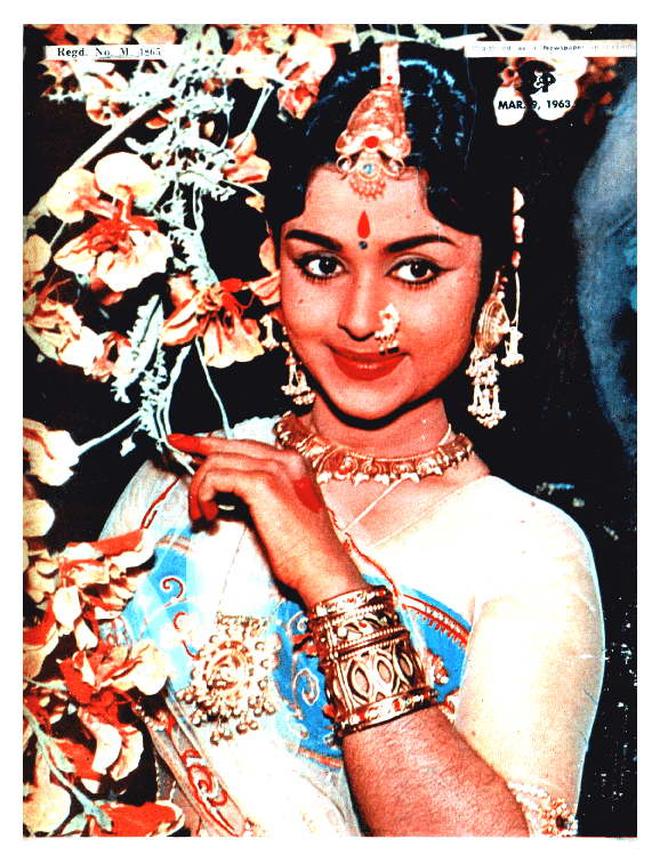
B. Saroja Devi in the Telugu and Kannada versions of ‘Amara Shilpi Jakkanna”.
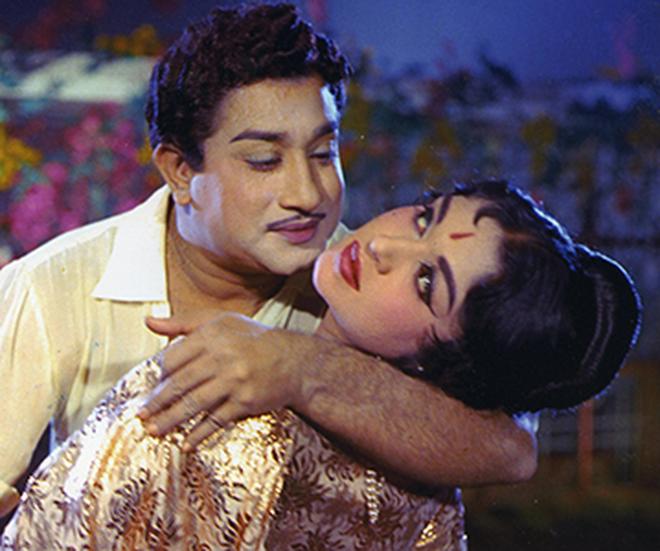
Sivaji Ganesan and Saroja Devi in ‘Pudiya Paravai’. She had paired with Sivaji Ganesan in 22 films.
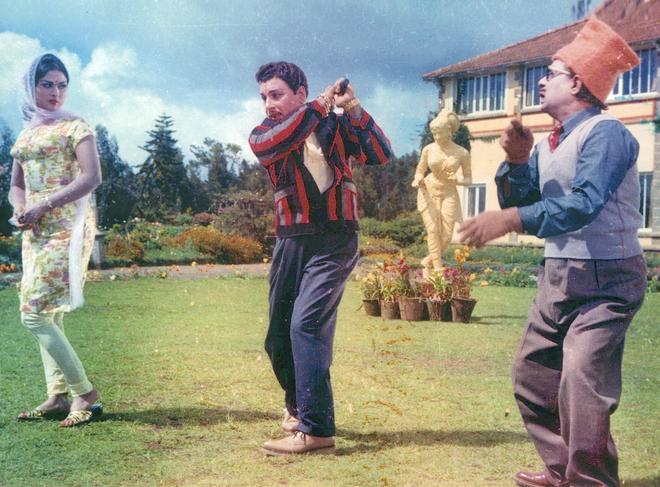
M.G. Ramachandran and Saroja Devi in ‘Anbe Vaa’. Making a mark with MGR in ‘Nadodi Mannan’, she acted with the late Tamil Nadu Chief Minister in 26 films.
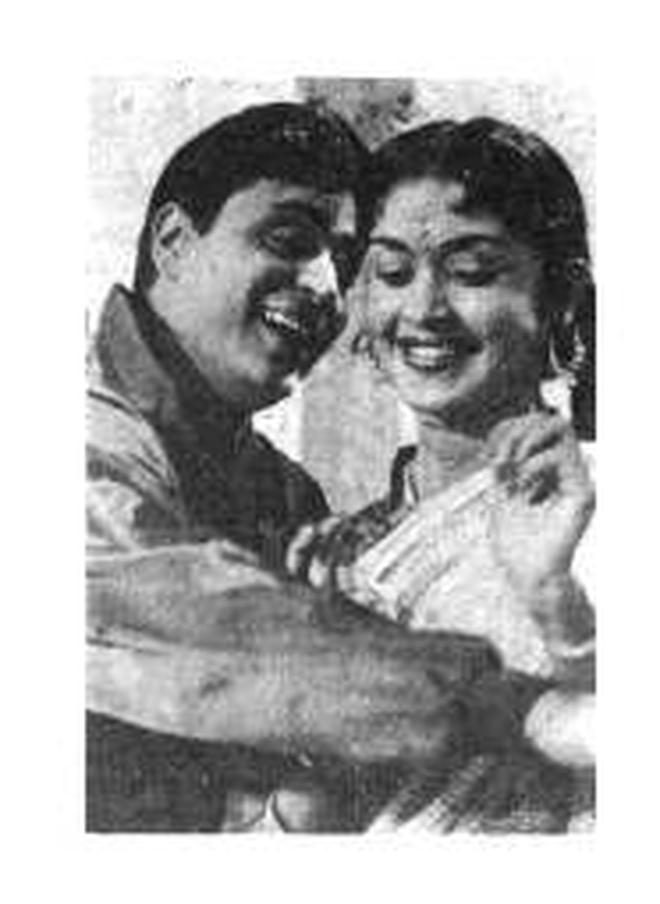
Rajendra Kumar and Saroja Devi in ‘Sasural’. She signed up for the Hindi films with Dilip Kumar, Sunil Dutt and also with Shammi Kapoor.
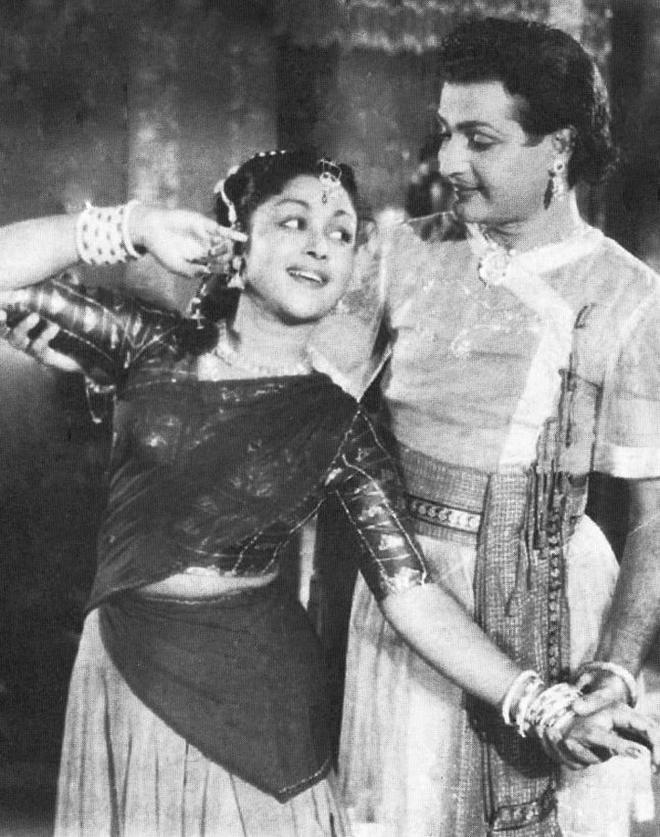
Saroja Devi continued to be among the highest-paid actresses in Kannada and Telugu films. She was cast opposite N. T. Rama Rao in films like Bhagyachakram (1968), Uma Chandi Gowri Sankarula Katha (1968), Vijayam Manade (1970), Mayani Mamatha (1970), Shakuntala and Daana Veera Soora Karna (1979).
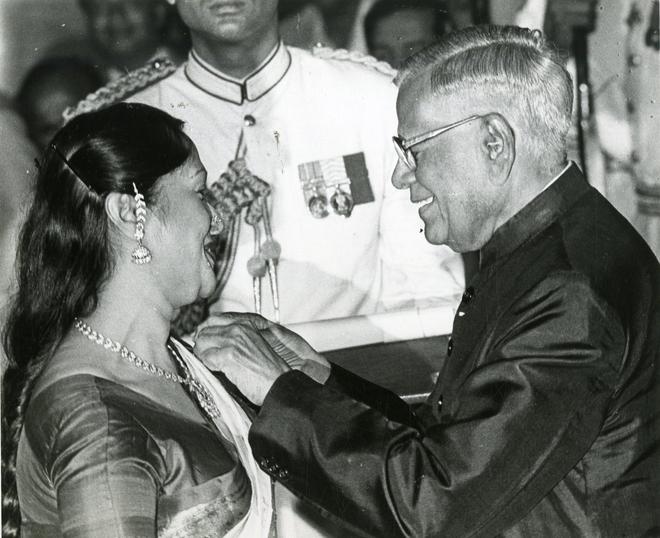
B. Saroja Devi was awarded Padma Sri in 1969 and Padma Bhushan in 1992. She was also awarded Kalaimamani by the Tamil Nadu Government.
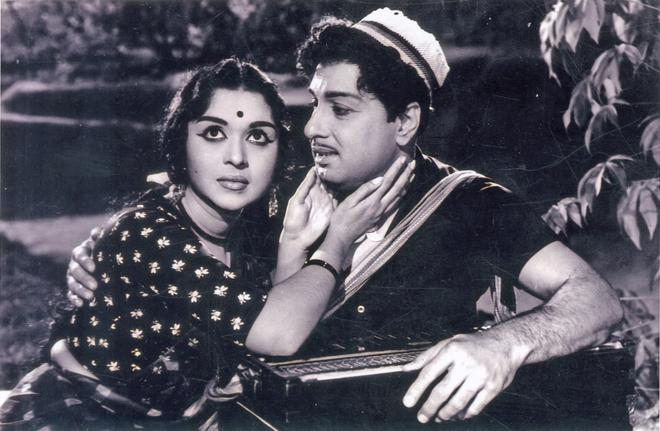
After her marriage in 1967, Saroja Devi’s career in Tamil cinema gradually declined though she was active in Kannada movies. Despite starring opposite with late MGR in 22 films, her last film with him was ‘Arasa Kattalai’ in 1967.
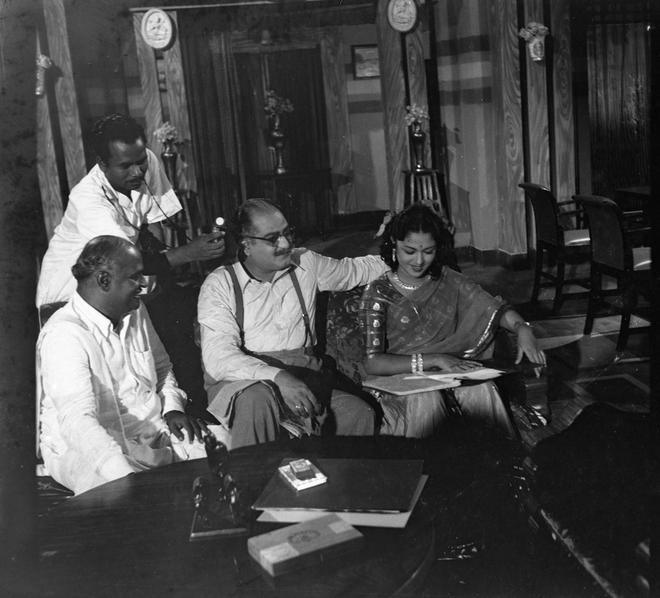
In this 1957 photo, B. Saroja Devi is seen with S.V. Ranga Rao. She also dominated Telugu film industry acting with N.T. Rama Rao and Akkineni Nageswara Rao.
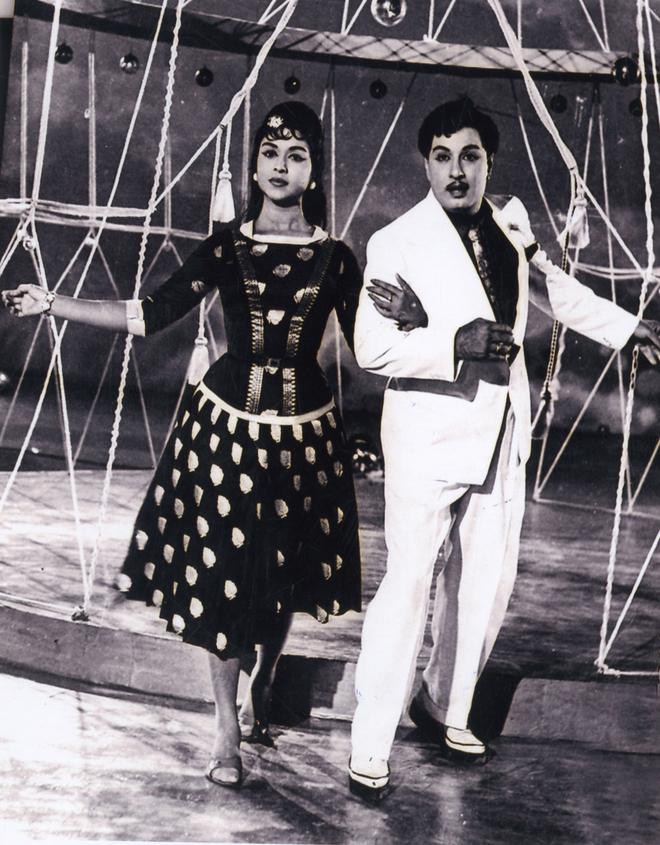
Saroja Devi was the only Indian actress to play lead heroine in 161 consecutive films in 29 years between 1955 and 1984
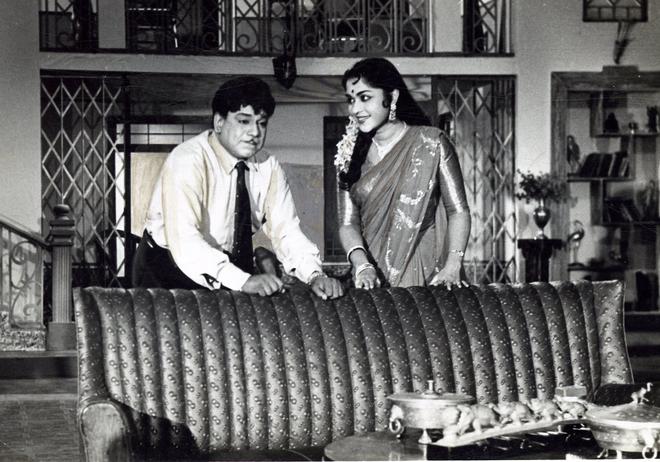
In this 1961, B. Saroja Devi is seen with M.R. Radha. in the film ‘Thai Sollai Thattathe.’ Her involvement in Tamil films also continued with superhits like ‘Palum Pazhamum’ (1961), ‘Vazhkai Vazhvatharke’ (1964), ‘Aalayamani’ (1962), ‘Periya Idathu Penn’ (1963), ‘Puthiya Paravai’ (1964), ‘Panakkara Kudumbam’ (1964), ‘Enga Veetu Pillai’ (1965) and ‘Anbe Vaa’ (1966).
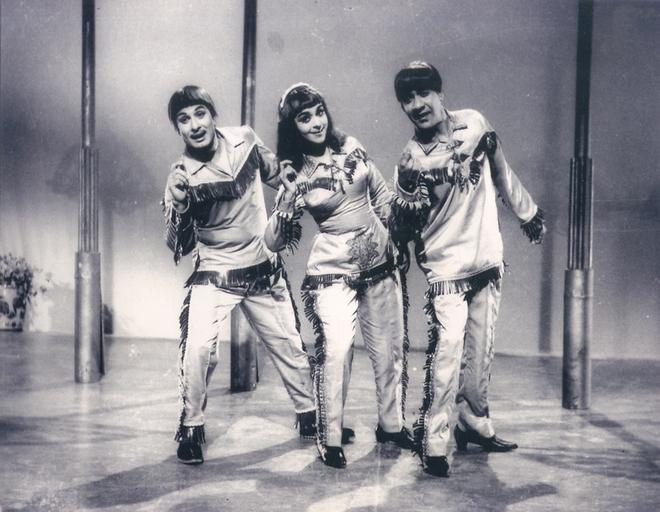
In the 1960s, Saroja Devi became a fashion icon among the South Indian women, who mimicked her saris, blouses, jewellery, hairstyles and mannerisms. In particular, her saris and jewellery from the Tamil movies ‘Enga Veettu Pillai’ (1965) and ‘Anbe Vaa’ (1966) were popularised widely in magazines
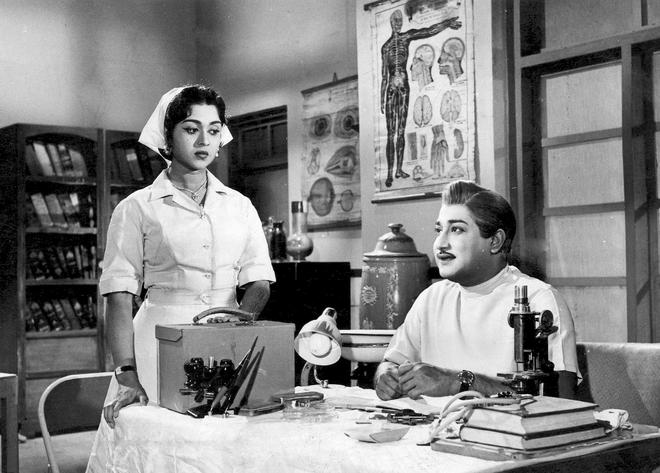
Sivaji Ganesan and B. Saroja Devi in the Tamil film ‘Paalum Pazhamum’. Saroja Devi continued starring in Tamil movies opposite Sivaji Ganesan after her marriage: ‘En Thambi’ (1968), ‘Anbalippu’ (1969), ‘Anjal Petti 520’ (1969), ‘Arunodhayam’ (1971), ‘Thenum Paalum’ (1971), ‘Paarambariyam’ (1993) and ‘Once More’ (1997).
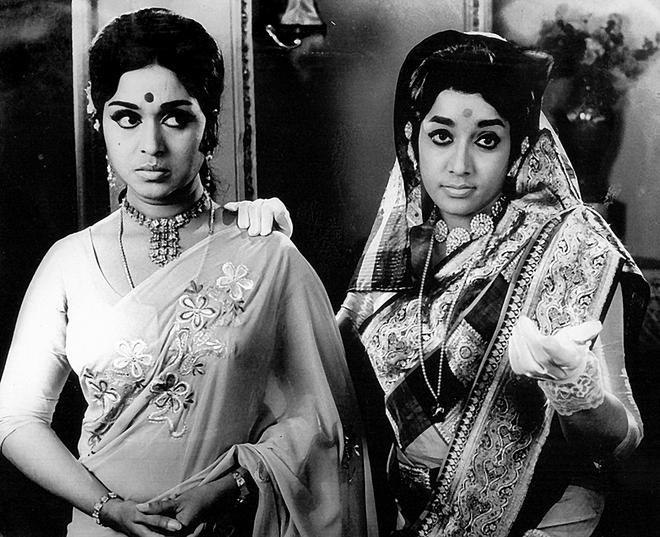
In her long career, Saroja Devi chiefly opted for romantic films only in the 1960s and later sentimental and socially relevant films right from the late 1960s to the 1980s.
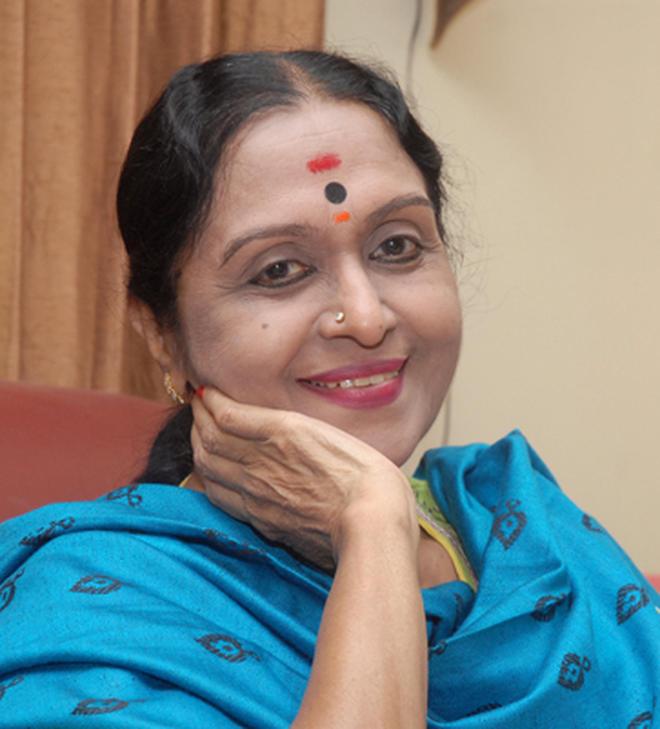
Twice in 1998 and 2005, Saroja Devi chaired film juries — the 45th National Film Awards and the 53rd National Film Awards jury. She served as the vice-president of Kannada Chalanchitra Sangha, and as a member of Tirumala Tirupati Devasthanams’s local advisory committee.
1/3
Published – July 14, 2025 01:52 pm IST






